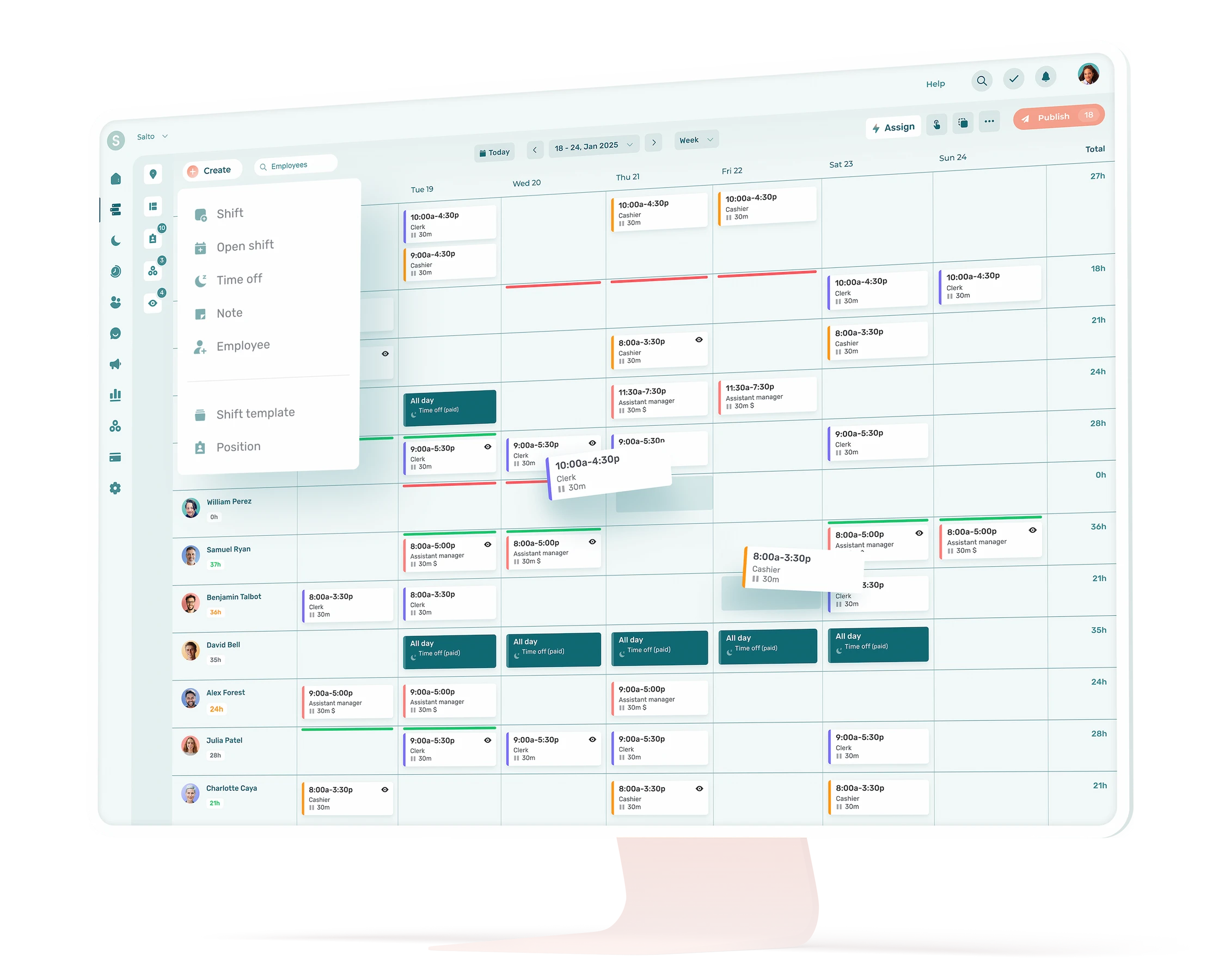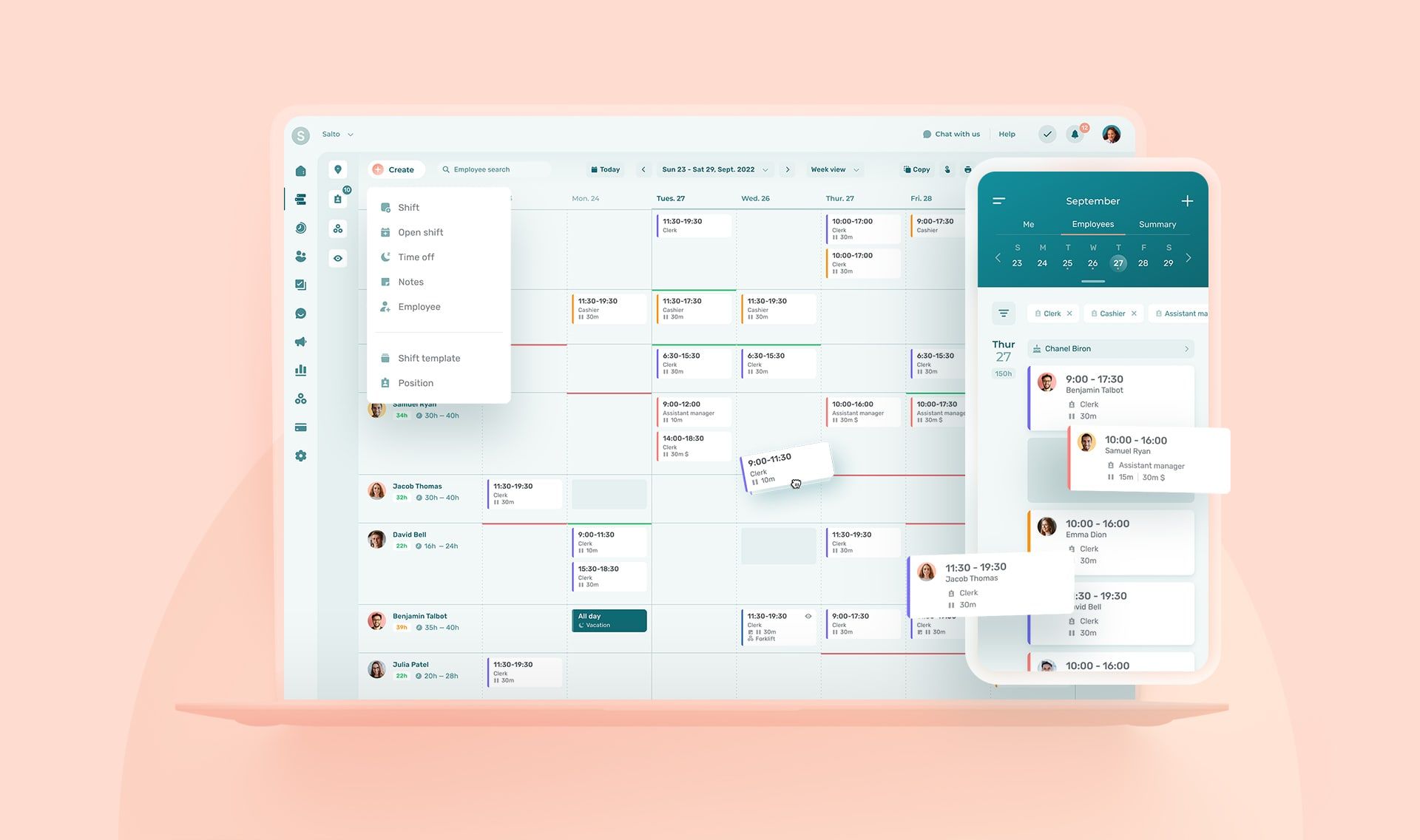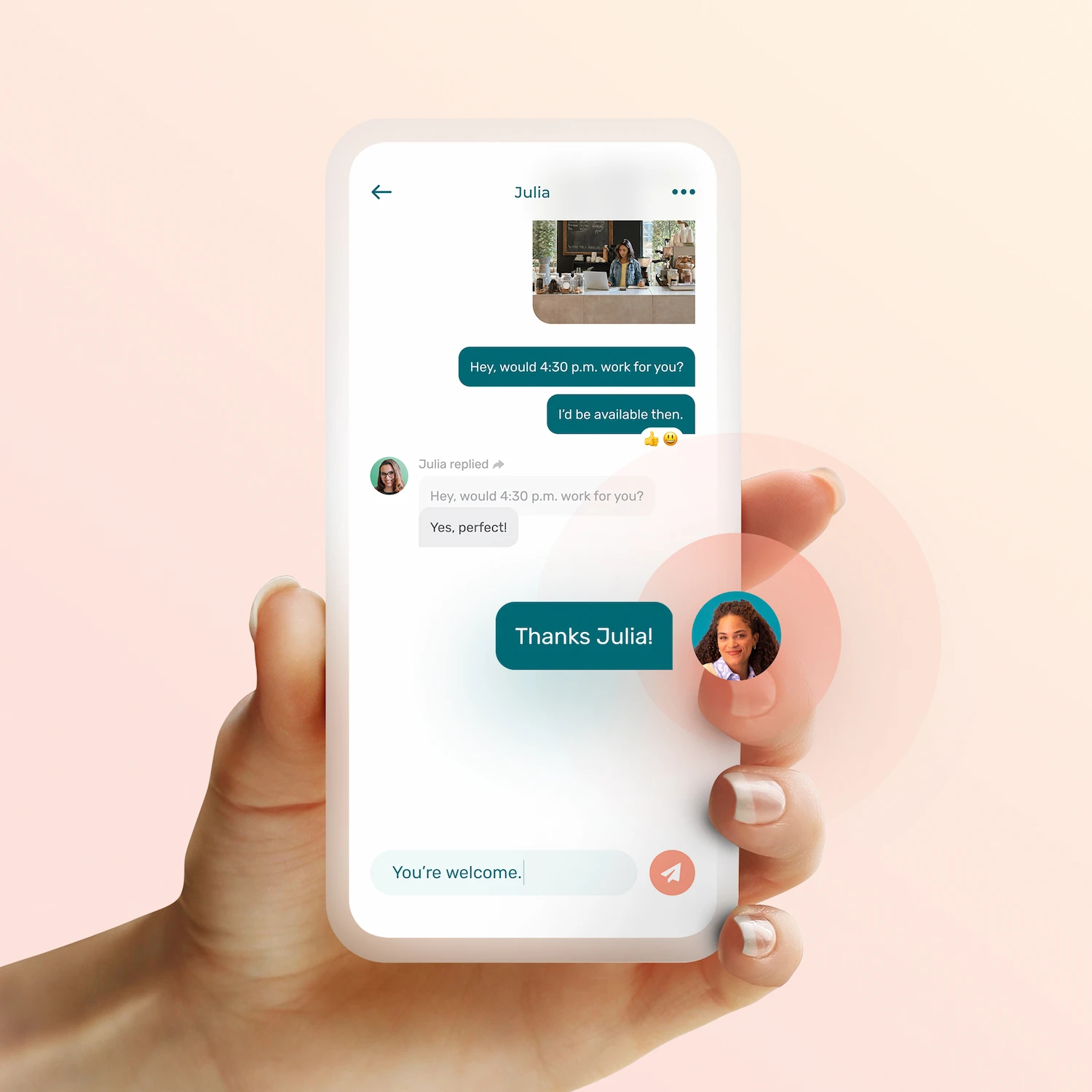Key takeaways
- Managing Generation Z in the workplace requires flexibility, continuous feedback, and modern employee scheduling software.
- Young workers want meaningful roles with strong work-life balance and alignment with their personal values, not just performance metrics.
- Workforce management solutions like Agendrix help HR managers in Quebec and across Canada simplify shift planning, improve communication, and reduce employee turnover.
- Adopting these practices reduces payroll errors, strengthens retention, and boosts employee engagemen, without increasing costs.
Managing Gen Z is now a key priority for any organization that wants to stay competitive and attractive. Understanding what drives Gen Z at work can help managers build more engaged teams while keeping operational costs under control.
Gen Z employees are digital natives, curious, and value-driven. They already make up a large portion of the workforce, and that number is only growing. Their unique expectations, flexibility, purpose, inclusion, are reshaping how we work.
In a context where many organizations are looking to reduce costs and boost efficiency, managing Gen Z effectively can become a real strategic advantage.
Doing so requires a shift in team management practices to keep young workers engaged, motivated, and loyal.
Who Is Gen Z In the Workplace?
Born between 1997 and 2010, Gen Z workers are the first true digital natives. They’ve grown up amidst global uncertainty, climate anxiety, and social media overload. These experiences shape their views on work and life.
Gen Z doesn’t only want a paycheque or job security, they’re looking for purpose, inclusion, and authenticity. While these expectations may feel demanding, meeting them can drastically reduce turnover, which is often a major cost driver.
Here’s what sets Gen Z apart at work:
- They value transparency and diversity.
- They want regular recognition, not just an annual review.
- Mental health is a top priority.
- They want flexible schedules within a clear framework.
👉 According to the 2024 Randstad Workmonitor, 40% of Gen Z would rather be unemployed than unhappy at work.
How Gen Z Sees Work
Work isn’t the centre of life for Gen Z. They are all about balance.
A 2023 GWI report shows that 72% of Gen Z actively protect their work-life boundaries. But make no mistake. They’re not lazy. Quite the opposite. They are deeply committed to meaningful projects that align with their values.
Concrete examples:
- In a pharmacy, a Gen Z tech will care more if they understand how their role directly impacts customer health.
- In retail, involving them in product decisions like sourcing local items increases their sense of purpose.
👉 Simple actions like these help connect their day-to-day tasks with meaningful outcomes, boosting motivation and retention.
10 Proven Ways to Better Manage Gen Z Employees
In today’s workplace, many employers are focused on cutting costs and boosting operational efficiency. At first glance, investing in strategies tailored to managing Gen Z at work may seem counterintuitive. The reality is that many of these approaches don’t require a bigger budget. They simply call for smarter management practices.
A young team that is well guided and motivated is more stable, more productive, and ultimately less costly over time. Less turnover, less repetitive training, fewer workplace conflicts.
Here are some practical management strategies that strengthen engagement among Gen Z employees while also improving your organization’s profitability.
1. Understand Gen Z’s Mindset
Before diving into management techniques, take time to understand what drives them. Gen Z grew up with tech, collaboration tools, and instant access to information.
They prefer collaboration over hierarchy. They want simple digital tools, clear communication, and an open team culture.
💡 Don’t print and pin their schedules to the wall. Use digital tools that are mobile-friendly and up to date.
Want to upgrade your scheduling?
2. Create an Authentic, Inclusive Workplace
Gen Z can spot inconsistencies quickly. They don’t want nice values on a poster. They want to see those values in action.
💡 Say what you mean and do what you say. Encourage diverse opinions and walk the talk. At Agendrix, one of our core values is No Bullshit. Transparent communication from leadership is a must.
3. Embrace the Leader-as-Coach Model
Forget micromanagement. Gen Z wants autonomy and guidance, not top-down control.
💡 Support them without babying them. Be available, ask questions, offer regular constructive feedback, and tailor your approach to each individual.
📚 Curious to learn more? Check out our article on situational leadership.
4. Communicate Clearly and Frequently
Gen Z sees clear, frequent communication as a form of respect.
💡 Skip the corporate jargon. Have honest one-on-one conversations. Keep it direct, kind, and consistent.
📚 Curious to learn more? Check out our article on How to communicate well at work.
5. Offer Development Opportunities
Gen Z views every job as a chance to learn something new. Stagnation leads to disengagement.
💡 Provide:
- Microlearning or internal training sessions
- Clear paths to grow within your company
6. Be Flexible, with Clear Boundaries
Flexibility matters to Gen Z, but they also appreciate structure.
💡 Let them manage availability or swap shifts with tools like Agendrix. Allowing shift swaps between employees or using open shifts to give your team more autonomy can make all the difference. At the same time, set stable rules. Fuzzy policies frustrate everyone, especially newcomers.
7. Prioritize Mental Health and Team Well-Being
Gen Z talks about mental health, and they expect their workplace to do the same.
💡 Make space for real conversations. Create a safe team atmosphere, encourage peer support, and offer resources when needed.
8. Use Modern, Mobile Tools
Outdated tools send the wrong message. Gen Z expects tech that works, looks good, and feels intuitive.
💡 A tool like Agendrix lets you:
- Centralize employee scheduling and workplace communication
- Cut down on no-shows
- Improve clarity and reduce back-and-forth
Learn more about how Agendrix works in 6 minutes.
9. Help Them Find Meaning in Their Work
Gen Z wants to understand why their work matters. This boosts both motivation and performance.
💡 Show how their role contributes to the company’s mission. For example, a server is more motivated when they understand how great service builds client loyalty.
10. Vary their Tasks
Routine leads to fast disengagement. To vary tasks :
- Rotate tasks.
- Offer project-based missions.
- Give them evolving responsibilities.
This keeps them motivated and builds versatility.
Better Management Means Lower Turnover and Costs
Managing Gen Z well isn’t a constraint. It’s an opportunity. With the right approach, one that focuses on inclusion, flexibility, communication, and modern tools, you build a team that is engaged, loyal, and more cost-effective over time.
What are the best tools to manage Gen Z employees?
Gen Z prefers mobile-first platforms that are intuitive and fast. Tools like Agendrix (scheduling software and team communication), Slack or Microsoft Teams (real-time messaging), and Officevibe (feedback and engagement) are particularly effective for Canadian SMEs, Québec-based companies, and French organizations seeking to connect better with their young workforce.
How to create a strong feedback culture with Gen Z?
To succeed in managing Generation Z at work, schedule regular check-ins, provide clear and actionable feedback, and encourage them to share their ideas. This two-way communication style builds trust and aligns with modern workplace expectations in Canada and Europe.
What are the biggest challenges of managing Gen Z employees?
The main challenges include:
- Their need for purpose-driven work
- Their desire for flexibility and work-life balance
- Their expectation of continuous feedback
For many managers in Québec, France, or North America, these elements require adapting traditional management approaches.
Why is Gen Z considered hard to manage?
Gen Z tends to question authority and prefers collaborative, transparent leadership. They value authenticity, inclusivity, and clarity, qualities that may contrast with more traditional top-down management styles.
How to motivate Gen Z at work?
Motivation comes from:
- Flexible schedules and remote work opportunities
- Learning and growth opportunities
- Regular recognition of their efforts
For employers in Canada, respecting personal boundaries and offering meaningful work are essential to keeping Gen Z engaged.
What does Gen Z expect from managers?
Gen Z employees expect leaders who are:
- Clear and supportive in their communication
- Comfortable with digital tools
- Open to real-time communication and ongoing coaching
This applies across industries, whether in Canadian retail or hospitality in Québec for example.













